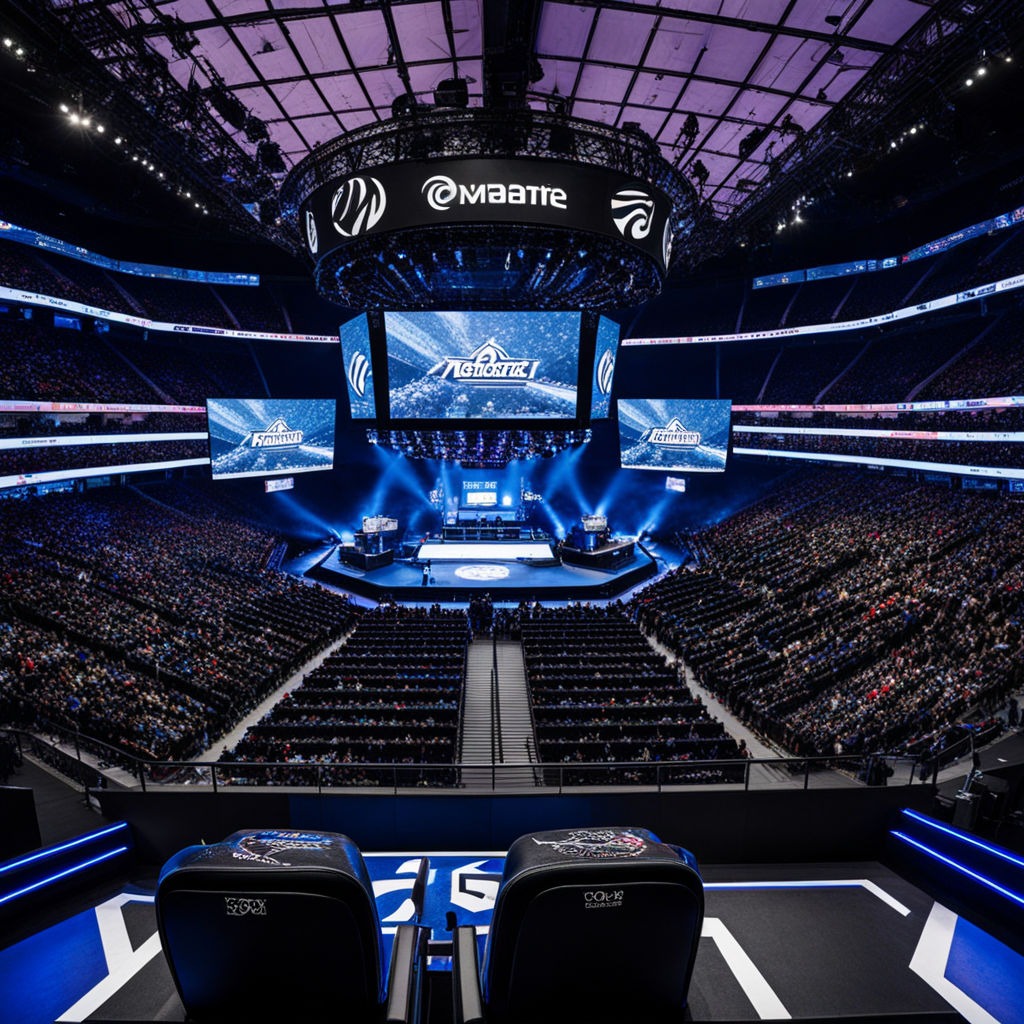Introduction
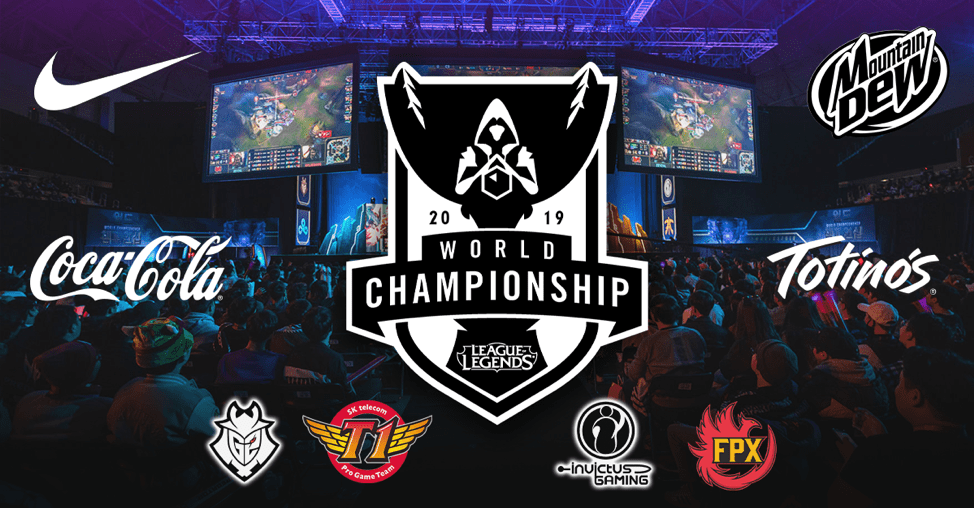
Welcome to the digital battleground where pixels and profits collide! Esports, once just a niche hobby for the uber-geeks, has exploded into a global phenomenon that’s captivating millions. From stadiums packed with cheering fans to millions more watching online, the growth of esports is nothing short of legendary.
Brief Overview of the Growth of Esports
Esports has gone from zero to hero in record time. Just look at the stats: the global esports audience is expected to hit a whopping 577.2 million by 2024! Major tournaments like The International and League of Legends World Championship pull in viewership numbers that rival traditional sports. This digital revolution is driven by a passionate and diverse community that spans the globe, from North America to Asia, and everywhere in between.
Importance of Sponsorship Deals in Esports
In this high-octane world, sponsorship deals are the fuel that keeps the engines running. Think of them as the ultimate power-up for both brands and esports teams. These deals provide crucial financial support, helping teams cover expenses, host jaw-dropping events, and push the boundaries of what’s possible. For brands, it’s a golden ticket to tap into a hyper-engaged, tech-savvy audience that’s notoriously hard to reach through traditional channels.
Why Brands Should Consider Esports Sponsorship
So, why should your brand hit the play button on esports sponsorship? First off, the reach is unbeatable. You’re not just putting your logo on a jersey; you’re embedding your brand into the very fabric of a cultural phenomenon. Esports fans are dedicated, passionate, and always online – the perfect demographic for modern marketing. Plus, the creative opportunities are endless. From in-game branding and exclusive content to influencer partnerships, the potential for innovative campaigns is limitless.
The Rise of Esports
Statistics on the Growth of Esports Viewership and Revenue:
The numbers don’t lie – esports is a beast! In 2023, the global esports market was valued at around $1.38 billion, and it’s projected to grow to over $1.86 billion by 2025. Viewership is off the charts too, with platforms like Twitch and YouTube Gaming racking up billions of hours watched each year. In fact, the League of Legends World Championship alone drew over 44 million concurrent viewers for its final match in 2021. That’s more eyeballs than some of the biggest traditional sports events!
Major Esports Tournaments and Their Popularity:
Let’s talk tournaments. These are the Super Bowls and World Cups of the esports universe. Events like The International (Dota 2) and Fortnite World Cup offer prize pools that can reach into the tens of millions, attracting top-tier talent from across the globe. The Call of Duty League and Overwatch League also pull in massive audiences, thanks to their highly organized, franchise-based structures. These tournaments are not just games; they’re full-blown spectacles with fan festivals, celebrity appearances, and cutting-edge production values.
Esports Demographic: Who’s Watching and Playing?
So, who’s tuning in and gearing up? The esports demographic is a marketer’s dream. Primarily composed of 18-34-year-olds, this audience is young, tech-savvy, and incredibly diverse. They’re digital natives who spend a significant chunk of their time online, whether they’re watching streams on Twitch or playing their favorite games on platforms like Steam. But it’s not just the stereotypical image of gamers you might be picturing – esports fans include everyone from casual viewers to hardcore enthusiasts, spanning different genders, ethnicities, and backgrounds.
Types of Esports Sponsorship Deals
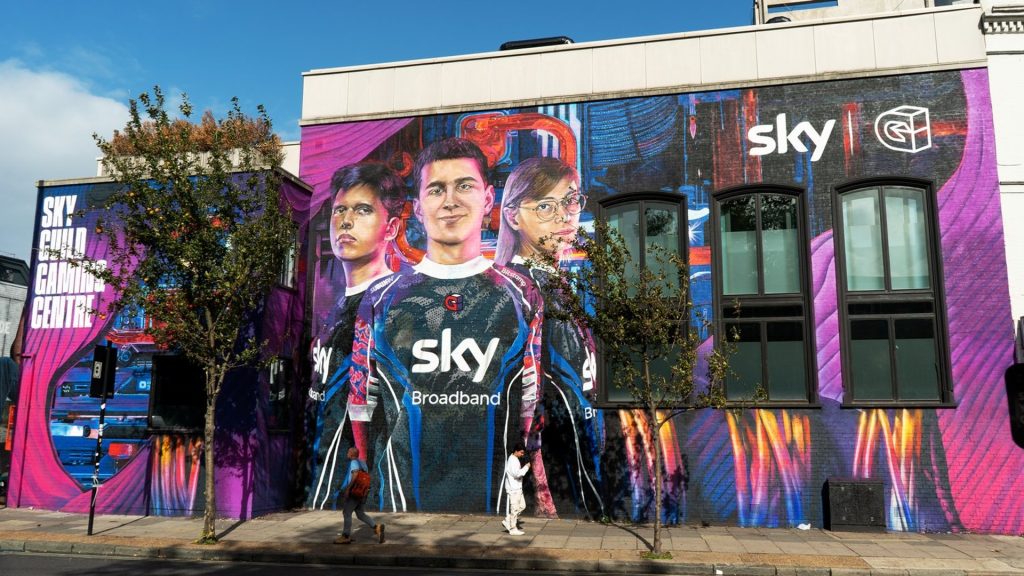
Team Sponsorships
Team sponsorships are like the bread and butter of esports partnerships. Brands team up (pun intended) with esports organizations to support their roster of players, coaches, and support staff. These deals can range from logo placements on jerseys and equipment to more immersive brand integrations in team content.
- Benefits:
- Brand Visibility: Your logo becomes a staple on jerseys, streams, and social media, reaching millions of fans.
- Association with Success: Aligning with winning teams boosts your brand’s prestige.
- Engagement Opportunities: Teams often create exclusive content, giving brands unique ways to interact with fans.
- Examples:
- Team Liquid, one of the most successful esports organizations, has sponsorship deals with major brands like Honda and Alienware.
- Cloud9, another powerhouse, boasts partnerships with companies such as Red Bull and Microsoft.
Event Sponsorships
Think of event sponsorships as the blockbuster deals. These are the big-budget, high-visibility partnerships that can put your brand in front of millions of engaged viewers.
- Major Events:
- The International: Dota 2’s premier event, known for its colossal prize pool.
- League of Legends World Championship: A massive annual event with a global audience.
- Overwatch League Grand Finals: The culmination of the Overwatch League season, drawing viewers from around the world.
- Sponsorship Opportunities:
- Naming Rights: Get your brand name on stages, arenas, and even in the title of the event.
- In-Game Advertising: Integrate your brand directly into the game during broadcasts.
- Exclusive Content: Partner with events to create branded behind-the-scenes content, interviews, and highlights.
Content Creators and Influencers
In the digital age, individual content creators and influencers wield immense power. These streamers and YouTubers have loyal followings and can provide brands with authentic, engaging ways to reach their audiences.
- Why Sponsor Individual Streamers and Content Creators?
- Authenticity: Influencers have built trust with their audiences. Their endorsement carries weight.
- Targeted Reach: Streamers and content creators often have niche audiences, allowing for precise marketing.
- High Engagement: Fans are highly interactive with their favorite creators, leading to higher engagement rates for sponsored content.
- Examples:
Key Benefits for Brands
Reach a Targeted, Engaged Audience
In the wild world of marketing, finding an audience that’s not only vast but also highly engaged is like striking gold. Esports fans are exactly that. They’re young, tech-savvy, and spend a significant chunk of their time online, making them a prime target for digital marketing. When you sponsor an esports team, event, or content creator, you’re putting your brand directly in front of millions of viewers who are actively watching, interacting, and sharing content.
- Why it Matters:
- Precision Targeting: Unlike traditional media, esports allows for pinpoint accuracy in reaching your desired demographic.
- Engagement: Esports fans are not passive viewers; they’re highly engaged, often participating in live chats, social media, and community forums.
Enhance Brand Awareness and Loyalty
Sponsoring esports is more than just slapping a logo on a jersey or a banner. It’s about creating memorable experiences that resonate with the audience. By associating your brand with the excitement and passion of esports, you’re not just increasing visibility; you’re building a connection with the community.
- Key Points:
- Brand Recall: Frequent exposure in high-energy, memorable contexts helps cement your brand in the minds of viewers.
- Loyalty: Esports fans are known for their loyalty to brands that support their favorite teams and players. This can translate into a dedicated customer base for your brand.
- Example:
Brands like Red Bull have successfully leveraged esports to enhance their brand image, becoming synonymous with energy and high performance.
Drive Sales and Conversions Through Strategic Placements
At the end of the day, it’s all about the bottom line. Esports sponsorships can drive tangible results, boosting sales and conversions through strategic placements and activations.
- How it Works:
- In-Game Advertising: Integrate your brand directly into the gaming experience. Think virtual billboards, branded skins, and in-game events.
- Exclusive Offers and Promotions: Partner with teams and events to offer exclusive discounts, limited edition products, or special promotions to the esports audience.
- Merchandising: Collaborate on co-branded merchandise that fans will love to buy and show off.
- Example:
HyperX has seen significant success by sponsoring events and teams, leading to increased sales of their gaming peripherals.
Successful Esports Sponsorship Case Studies
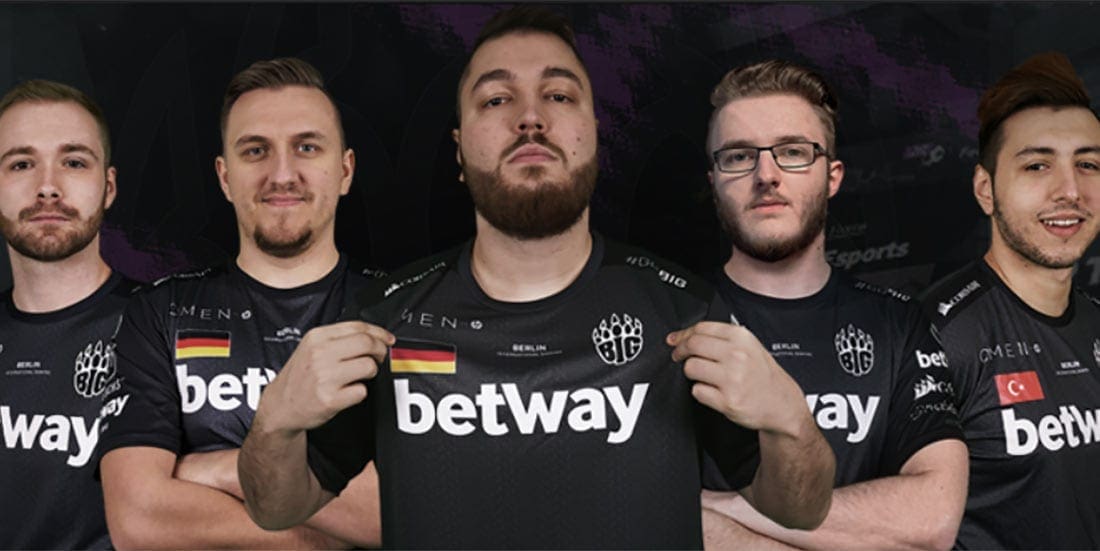
Brand X and Team Y Partnership Success Story
Example: Red Bull and OG
Red Bull’s sponsorship of OG, the legendary Dota 2 team, is a textbook example of a successful esports partnership. When Red Bull teamed up with OG, it wasn’t just about logo placements. Red Bull went all-in, supporting OG with training facilities, nutrition plans, and branded content. This holistic approach paid off big time.
- Success Metrics:
- Championship Wins: OG won back-to-back The International tournaments in 2018 and 2019, making history and boosting Red Bull’s brand visibility.
- Engagement: The partnership generated millions of views across social media and video platforms, with fans engaging heavily with branded content.
- Brand Association: Red Bull’s association with a winning team bolstered its image as a brand that supports excellence and peak performance.
How Brand Z Leveraged an Esports Event to Boost Sales
Example: Gillette and the League of Legends World Championship
Gillette’s sponsorship of the League of Legends World Championship was a masterclass in leveraging an esports event to drive sales. Gillette didn’t just sponsor the event; they integrated their brand into the experience in innovative ways.
- Tactics:
- In-Game Advertising: Gillette featured virtual ads within the game’s broadcast, reaching millions of viewers.
- Exclusive Content: They produced a series of behind-the-scenes videos with popular League of Legends players, showcasing how Gillette products fit into their daily routines.
- Promotional Offers: Gillette offered exclusive discounts on their products during the event, driving both online and in-store sales.
- Results:
- Sales Spike: Gillette saw a notable increase in sales during and immediately after the event.
- Brand Engagement: The exclusive content series garnered millions of views and significant engagement across social media platforms.
Influencer Collaboration That Drove Significant Engagement
Example: Logitech and Shroud
Logitech’s collaboration with Shroud, one of the most popular streamers, exemplifies how powerful influencer partnerships can be. Shroud, known for his exceptional gaming skills and down-to-earth personality, has a massive following on platforms like Twitch and YouTube.
- Key Strategies:
- Product Integration: Shroud frequently used and endorsed Logitech’s gaming peripherals in his streams, seamlessly integrating the brand into his content.
- Exclusive Releases: Logitech launched Shroud-branded products, including a custom mouse and keyboard, which sold out quickly due to high demand.
- Live Engagement: Shroud hosted live unboxing and review sessions, engaging his audience directly and authentically.
- Outcomes:
- High Engagement: Shroud’s streams featuring Logitech products garnered millions of views and extensive interaction from fans.
- Sales Boost: The Shroud-branded products sold exceptionally well, driving significant revenue for Logitech.
- Brand Loyalty: Logitech strengthened its position in the gaming community, with fans associating the brand with high-quality, professional-grade equipment.
How to Choose the Right Sponsorship Opportunity
Identifying Your Target Audience
Before diving into the esports sponsorship pool, it’s crucial to know who you’re trying to reach. Esports audiences are diverse, but understanding the specific segments that align with your brand can make all the difference.
- Steps to Identify Your Audience:
- Demographic Research: Look into age, gender, geographic location, and interests of esports fans. Platforms like Statista and Newzoo offer valuable insights.
- Psychographics: Understand the lifestyle, values, and behaviors of your target audience. Are they casual gamers or hardcore enthusiasts? Do they prefer certain genres or games?
- Platform Preference: Determine where your audience spends their time. Are they on Twitch, YouTube Gaming, or Facebook Gaming? This helps tailor your sponsorship to the right platform.
Assessing the Reputation and Reach of Potential Partners
Not all sponsorship opportunities are created equal. Partnering with the right team, event, or influencer can significantly impact your brand’s success.
- Criteria for Assessment:
- Reputation: Research the history and reputation of potential partners. Are they well-respected in the esports community? Do they have a track record of professionalism and success?
- Reach: Analyze their audience size and engagement metrics. Tools like Social Blade can help you evaluate the social media reach of influencers and teams.
- Alignment: Ensure their values and audience align with your brand’s identity. A good fit will make the partnership feel authentic and resonate more with the audience.
Evaluating the ROI of Sponsorship Deals
Ultimately, any sponsorship deal needs to make financial sense. Evaluating the potential return on investment (ROI) is key to making an informed decision.
- Factors to Consider:
- Cost vs. Exposure: Calculate the cost of the sponsorship against the potential exposure. Higher exposure should justify higher costs. Tools like Google Analytics can help track the effectiveness of digital campaigns linked to your sponsorship.
- Engagement Metrics: Look at past sponsorships’ performance in terms of engagement (likes, shares, comments) and conversion rates. High engagement often translates to better ROI.
- Sales Impact: Track sales before, during, and after the sponsorship period. Use promo codes, special offers, or dedicated landing pages to measure direct sales impact.
- Tips for Maximizing ROI:
- Activation Campaigns: Complement your sponsorship with targeted marketing campaigns to maximize visibility and engagement.
- Data Analysis: Regularly review performance data and adjust strategies accordingly. This continuous improvement approach ensures you’re getting the most out of your investment.
- Leverage Multiple Channels: Use the sponsorship across various marketing channels—social media, email, in-store promotions—to amplify its impact.
Potential Pitfalls and How to Avoid Them
Common Mistakes Brands Make in Esports Sponsorship
Even with the best intentions, brands can stumble when entering the esports arena. Here are some common pitfalls and how to sidestep them:
- Lack of Understanding the Audience:
- Mistake: Treating esports fans like traditional sports fans.
- Solution: Conduct thorough research to understand the unique culture, preferences, and values of the esports community. Engage with fans on platforms like Reddit, Discord, and gaming forums to get insights straight from the source.
- Poor Fit with the Sponsored Entity:
- Mistake: Partnering with a team or event that doesn’t align with your brand values or target audience.
- Solution: Ensure your sponsorship aligns with both your brand and the partner’s image. For instance, a luxury brand might not resonate with a budget-friendly esports team but could align well with a premier league or top-tier influencer.
- Ignoring the Community:
- Mistake: Failing to engage with the esports community authentically.
- Solution: Participate in the community genuinely. Sponsor fan events, support grassroots initiatives, and listen to community feedback. Brands like Razer excel by being active and supportive members of the esports community.
Ensuring Authenticity in Partnerships
Authenticity is the golden rule in esports. Fans can spot a disingenuous sponsor a mile away, and inauthenticity can backfire spectacularly.
- Transparent Communication:
- Strategy: Be open about your intentions and involvement. Whether it’s a sponsored post, a brand partnership, or a product placement, transparency builds trust.
- Align with Community Values:
- Strategy: Understand what matters to the community. For example, if sustainability is a core value, highlight your brand’s eco-friendly practices in the sponsorship.
- Involve Influencers and Teams in Content Creation:
- Strategy: Collaborate with influencers and teams to create content that feels organic and relatable. Let them have creative freedom to maintain their authentic voice. Look at Logitech’s partnership with Shroud as a prime example.
Navigating the Competitive Landscape
The esports sponsorship space is booming, and competition is fierce. To stand out, brands need to be strategic and innovative.
- Unique Value Proposition:
- Tip: Offer something unique that sets you apart from other sponsors. It could be exclusive content, innovative products, or unique fan experiences. For instance, Intel hosts exclusive events and tournaments, adding value beyond just a logo placement.
- Flexibility and Adaptability:
- Tip: The esports landscape evolves rapidly. Be prepared to adapt your strategies in response to trends, game releases, and community feedback. Stay agile and be willing to pivot your approach as needed.
- Building Long-Term Relationships:
- Tip: Focus on building long-term partnerships rather than one-off deals. Long-term sponsorships help build deeper connections with the audience and provide more substantial returns. Brands like Nike have seen success by committing to multi-year deals with esports organizations.
The Future of Esports Sponsorship
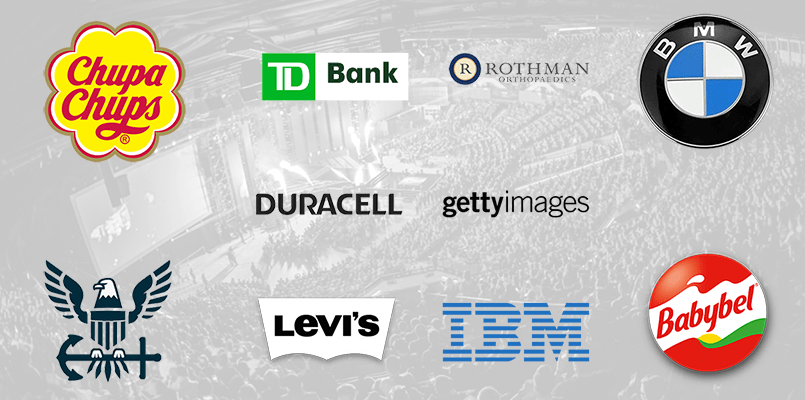
Emerging Trends in Esports Sponsorship
The esports industry is evolving at a breakneck pace, and sponsorship strategies are transforming along with it. Here are some emerging trends shaping the future:
- Increased Integration with Traditional Sports:
- Esports is increasingly being recognized alongside traditional sports. Major sports leagues and teams are investing in esports, creating hybrid sponsorship opportunities that span both realms. For example, ESL, a leading esports organizer, has partnerships that blur the lines between digital and physical sports events.
- Localization of Esports Leagues:
- Just like traditional sports teams, esports organizations are focusing on local markets to build regional fan bases. This trend opens up new sponsorship avenues for brands looking to tap into local markets while benefiting from global reach. The city-based structure of the Overwatch League is a prime example.
- Expansion of Non-Endemic Brands:
- More non-endemic brands (those not directly related to gaming) are entering the esports space. Companies from sectors like finance, automotive, and fashion are recognizing the value of esports sponsorships. With the esports market projected to be worth over $1 billion USD by 2024, it’s an attractive proposition for diverse brands looking to engage a young, tech-savvy audience.
The Role of New Technologies (AR, VR) in Sponsorship Deals
New technologies are revolutionizing how brands interact with esports audiences, making sponsorships more immersive and engaging.
- Augmented Reality (AR):
- AR is enhancing the viewer experience by overlaying digital content onto real-world environments. Brands can sponsor AR features in live broadcasts, such as interactive player stats or branded visual effects, creating memorable and engaging experiences.
- Virtual Reality (VR):
- VR offers immersive experiences that can transform how audiences engage with esports. Brands can sponsor VR viewing experiences for tournaments, allowing fans to feel as if they’re right in the middle of the action. VR can also be used for virtual meet-and-greets with players, branded VR games, and more.
- Example: The VR League, sponsored by ESL and Oculus, showcases how VR technology can be integrated into esports, offering brands unique opportunities to engage with a tech-forward audience.
Predictions for the Next Five Years
- Continued Growth and Mainstream Acceptance:
- Esports will continue its trajectory towards mainstream acceptance, rivaling traditional sports in viewership and cultural impact. By 2029, the esports market is expected to exceed $2 billion USD in value, with sponsorships playing a significant role in this growth.
- Greater Global Reach:
- As internet infrastructure improves worldwide, esports will penetrate new markets, particularly in regions like Africa and Southeast Asia. This expansion will provide brands with fresh opportunities to reach new audiences on a global scale.
- Enhanced Fan Engagement Through Technology:
- The integration of AR and VR will become more sophisticated, offering fans unprecedented levels of interaction and immersion. Brands that leverage these technologies effectively will stand out and foster deeper connections with esports communities.
- Esports Becoming a Staple in Marketing Strategies:
- As the industry grows, esports sponsorships will become a standard component of marketing strategies for a wider range of brands. The ability to reach a highly engaged, global audience will make esports an indispensable channel for brand promotion.
